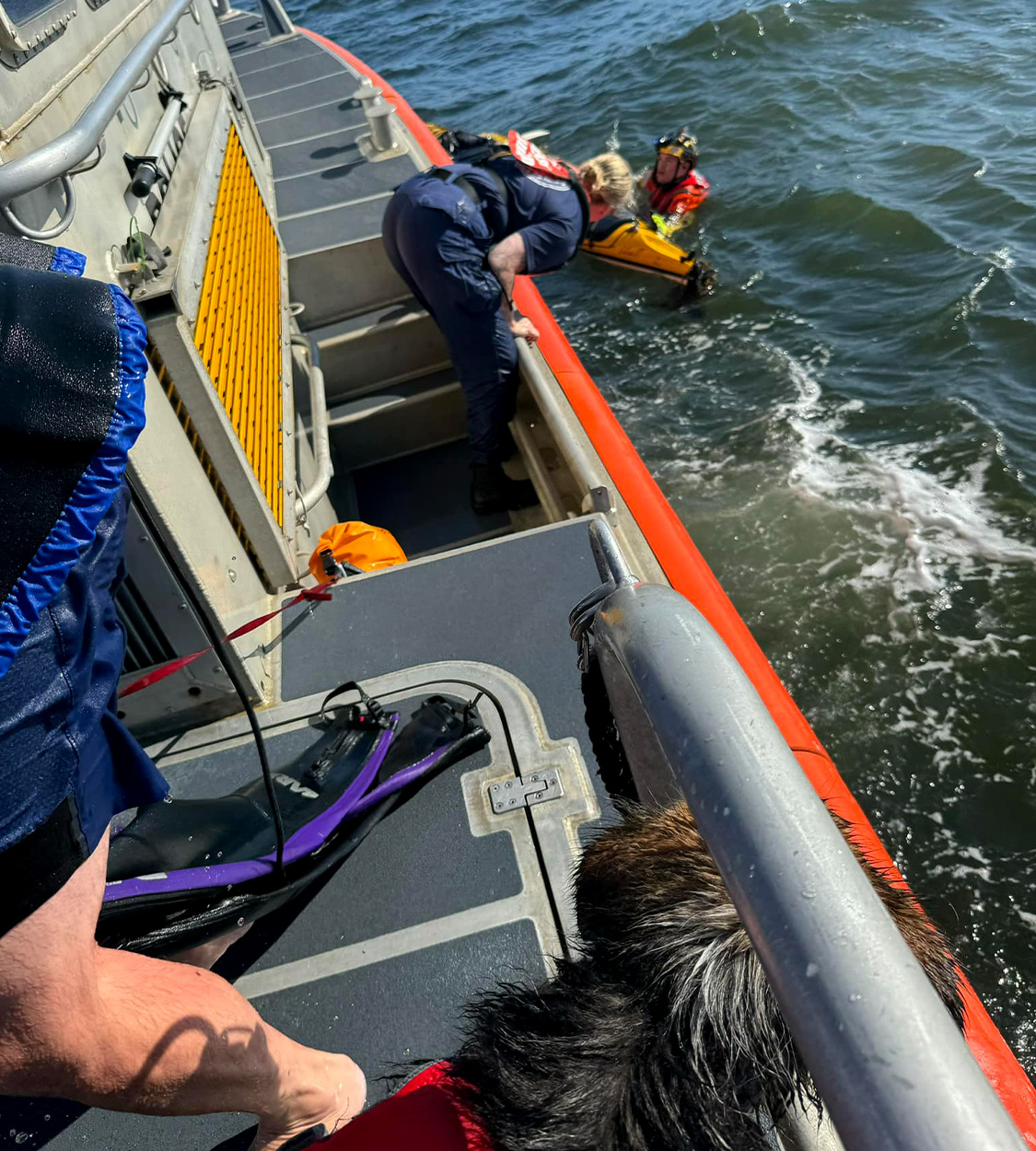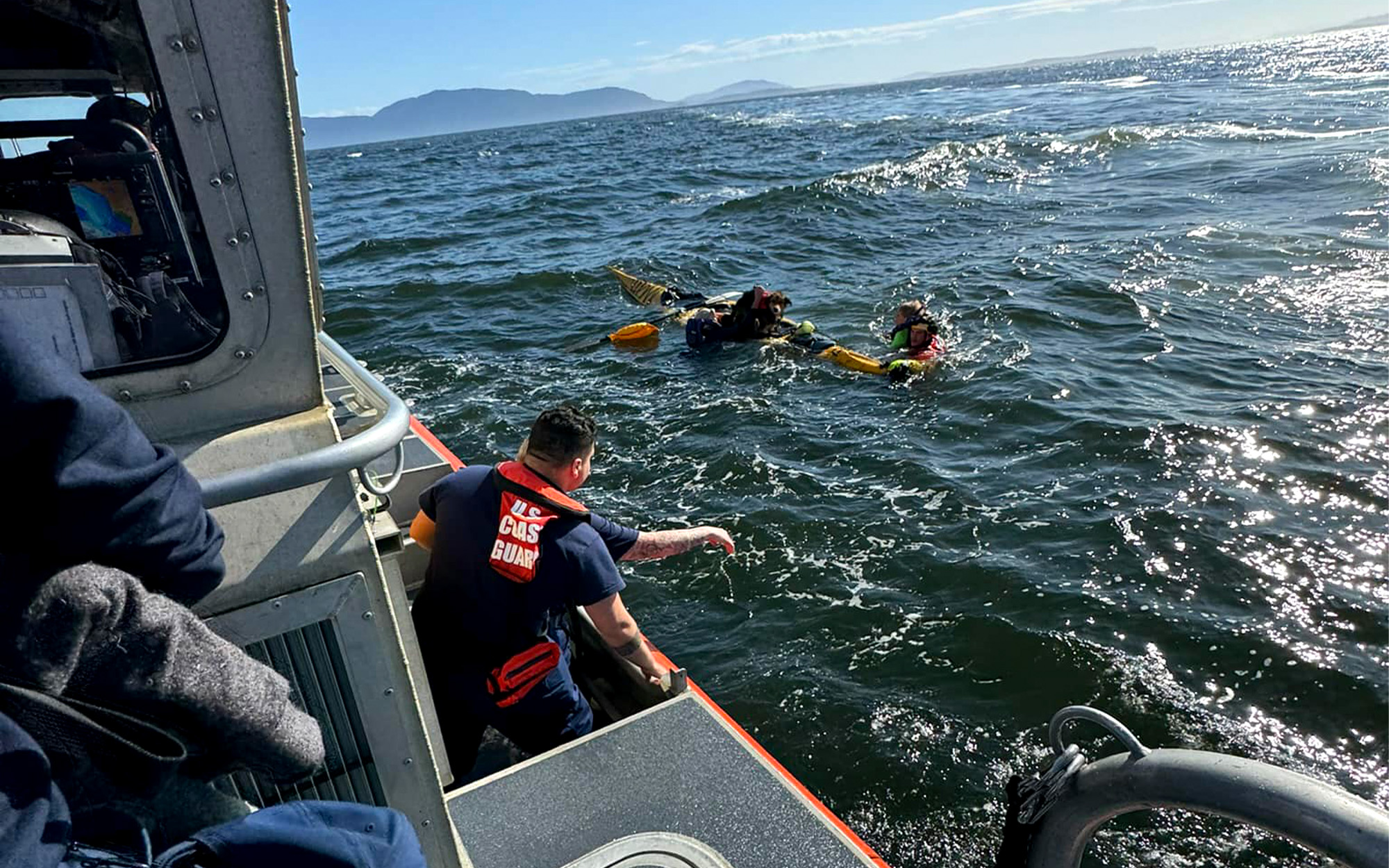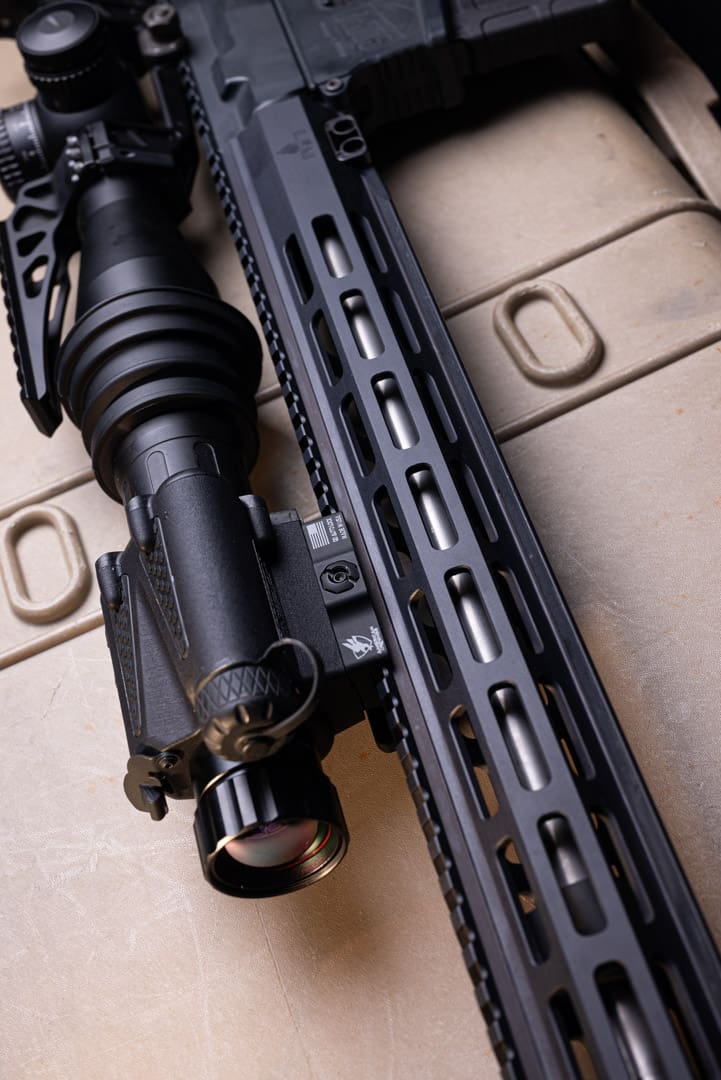A family in Washington State was saved from the frigid bay waters on Monday after their sea kayaks were swamped by high winds and waves near Lummi Island. Officials with the U.S. Coast Guard’s Bellingham Station, which coordinated the successful rescue, said the group’s use of a Garmin inReach was “crucial” for their quick recovery.
USCG Lt. Terrel Sisk, the commanding officer who oversaw the rescue, tells Outdoor Life that they first received an SOS signal from the family’s Garmin inReach around 4 p.m. The entire operation took a little over an hour, and rescuers had the family back on dry land by 5:15 p.m. Nobody in the party was badly injured, but some were on the brink of hypothermia by the time rescuers arrived.
“If they were in that water for any longer, we definitely would be dealing with a different case,” Sisk says.
Photo by USCG
Although there are some lessons to be learned from the family’s experience on Bellingham Bay, the USCG emphasized in a Facebook post that the adults in the party were experienced paddlers. The group included four adults, one child, and a small dog. They were all wearing life vests, including the dog. Paddling in two three-seater sea kayaks roughly a mile west of Lummi Island, the group was caught off guard by high winds, which kicked up three- to five-foot waves that quickly swamped their boats.
“As soon as they hit that section where the wind picked up, that’s where stuff started to go wrong,” Sisk explains. “Now people are in the water and panic is starting to set in … and they couldn’t get the water out of their boats fast enough. As soon as they would get the water out of one of the kayaks, the next wind wave would fill it back up.”
Read Next: Watch: Fishing Guide Rescues Kayaker from Deadly Low-Head Dam
Neither of the kayaks were recovered, Sisk says, because rescuers were focused on getting the family out and the boats were too long to easily bring aboard. It’s unclear if the paddlers were wearing spray skirts (also known as spray decks), which would have prevented water from entering the boats.
Sisk says that regardless, they could have been much better prepared with cold-water immersion gear. Some had neoprene shirts or wetsuits on, which Sisk says provided some warmth as they waited in the 50-degree water, but they should have been wearing dry suits instead.

Photo by USCG
“The child did have a neoprene shirt on, but it was the kind of gear you’d wear when you’re not planning on going in the water,” he says.
This gets at two cardinal rules of what to wear when kayaking: Always dress according to the water temperature and not the air temperature, and always be prepared for a swim.
One of the adults in the group hit the SOS button on their inReach immediately after the boats swamped. Sisk says the adults were able to get the dog and child back into the water-filled kayaks, while they stayed in the water and waited for rescue.

Photo by USCG
All kayakers should learn and practice self-rescue techniques so they’re prepared if they capsize, and anyone recreating on open seas should check detailed wind and weather forecasts. Sisk says this incident just goes to show that conditions can change rapidly on the water, and that it’s always harder to perform under pressure.
Read Next: The Best Life Jackets, Tested and Reviewed
“You can go through those recovery procedures yourself when you’re in a nice, closed environment,” Sisk says. “But when you add other people and they’re panicked, it’s different.”
Read the full article here




